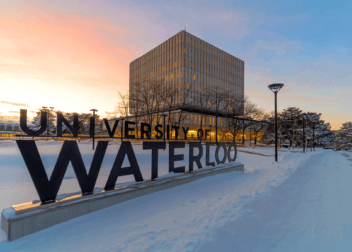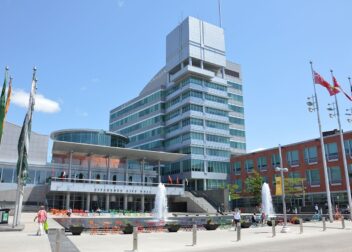Evaluating the Fundamentals of a City to Live In: A Comprehensive Guide
Introduction
Choosing the right city to live in is one of life’s most significant decisions. Whether you’re relocating for work, family reasons, or simply seeking a change of scenery, it’s essential to evaluate the fundamentals of a city to ensure it aligns with your lifestyle, goals, and priorities. This article provides a comprehensive guide to help you assess and evaluate the key factors that contribute to a city’s liveability.
Cost of Living
One of the first and most crucial aspects to consider is the cost of living in your prospective city. Evaluate the following components:
- Housing Costs: Research the average home prices and rental rates. Are they affordable relative to your budget? Consider factors such as property taxes and utilities.
- Food and Groceries: Look into grocery prices and the cost of dining out. Is the local cuisine affordable, and does it align with your preferences?
- Transportation: Investigate the cost of public transportation, fuel prices, and parking fees if you own a car. A well-connected public transportation system can save you money in the long run.
- Healthcare: Examine healthcare costs, including insurance premiums and the availability of quality medical facilities.
- Taxes: Understand the local tax structure, including income, sales, and property taxes. High taxes can significantly impact your overall cost of living.
Employment Opportunities
Your career prospects and job market opportunities play a pivotal role in your decision to move to a new city. Consider the following:
- Job Availability: Research the employment rate and the presence of industries relevant to your field. Are there ample job opportunities?
- Salary Levels: Compare salary levels in your industry in the new city to your current location. Ensure that your income will meet your financial needs and goals.
- Networking Opportunities: Evaluate the city’s networking events, professional organizations, and job fairs. Building connections is often crucial for career growth.
- Commute Time: Consider how your potential job location may impact your daily commute. Long commutes can negatively affect work-life balance.
Quality of Education
If you have children or plan to in the future, the quality of education in your chosen city is paramount. Key considerations include:
- School Ratings: Research the ratings and reviews of local schools, both public and private. High-quality schools can significantly impact your child’s education and future prospects.
- School Facilities: Visit schools and assess their facilities, extracurricular programs, and teaching staff. A well-rounded education is crucial for your child’s development.
- Educational Options: Evaluate the availability of educational options, including specialized schools and learning centers.
- College and University Access: If you have older children or are considering higher education, check for nearby colleges and universities.
Safety and Crime Rates
Feeling safe in your new city is a top priority. Consider the following safety-related factors:
- Crime Rates: Research the city’s crime rates, including violent and property crimes. Reliable sources include local police departments and online crime databases.
- Neighborhood Safety: Assess the safety of specific neighborhoods within the city. Online community forums and local residents can provide valuable insights.
- Emergency Services: Ensure that the city has efficient emergency services, including police, fire, and medical assistance.
- Disaster Preparedness: Investigate the city’s preparedness for natural disasters and the availability of evacuation plans.
Quality of Healthcare
Access to quality healthcare is essential for a healthy and comfortable life. Evaluate the healthcare system in your prospective city by considering:
- Hospitals and Clinics: Research the availability of hospitals, clinics, and medical specialists. Are they conveniently located and known for providing high-quality care?
- Health Insurance: Check the options for health insurance providers and the cost of premiums. Make sure your preferred healthcare facilities accept your insurance plan.
- Specialty Care: If you have specific medical needs or conditions, ensure that the city has the necessary specialists and treatment options.
- Wellness and Fitness: Explore the availability of wellness programs, gyms, and recreational facilities that promote a healthy lifestyle.
Cultural and Recreational Opportunities
A city’s cultural and recreational offerings can greatly enrich your life. Consider the following:
- Arts and Culture: Investigate the city’s cultural scene, including museums, theaters, art galleries, and music venues. Are there opportunities to engage in cultural activities you enjoy?
- Parks and Outdoor Activities: Evaluate the availability of parks, trails, and outdoor recreational spaces. Access to nature can positively impact your overall well-being.
- Entertainment and Events: Check for local events, festivals, and entertainment options that align with your interests.
- Dining and Cuisine: Consider the diversity and quality of restaurants and cuisine options in the city. A thriving culinary scene can add excitement to your daily life.
Transportation and Infrastructure
Efficient transportation and well-maintained infrastructure are vital for daily convenience. Assess the following:
- Public Transportation: Evaluate the city’s public transportation system, including buses, subways, trams, and commuter trains. Is it reliable and extensive?
- Road Conditions: Check the condition of roads, bridges, and highways. A well-maintained road network reduces commute times and vehicle wear and tear.
- Traffic Congestion: Investigate the city’s traffic patterns and congestion levels. Consider how traffic may affect your daily life.
- Infrastructure Development: Research any ongoing or planned infrastructure projects that could impact your quality of life.
Climate and Weather
The climate and weather of a city can significantly influence your daily activities and comfort. Consider:
- Climate Type: Determine the climate type of the city (e.g., tropical, temperate, arid). Ensure it aligns with your climate preferences and tolerance.
- Seasonal Variations: Investigate the city’s seasonal changes in temperature, precipitation, and daylight hours.
- Extreme Weather: Check for the occurrence of extreme weather events such as hurricanes, tornadoes, earthquakes, or wildfires.
- Climate Adaptation: Research how the city addresses climate-related challenges, such as flood control and heat mitigation.
Community and Social Life
Building a sense of community and finding social connections is crucial for a fulfilling life. Evaluate:
- Social Activities: Investigate social clubs, hobby groups, and community organizations that align with your interests.
- Diversity and Inclusion: Assess the city’s commitment to diversity and inclusion, as it can greatly impact your sense of belonging.
- Local Events: Check for local events, meetups, and gatherings that provide opportunities to connect with others.
- Friendliness: Pay attention to the friendliness and hospitality of the local population. A welcoming community can make your transition smoother.
Future Growth and Development
Consider the city’s long-term prospects and potential for growth:
- Economic Growth: Research the city’s economic stability and potential for future growth in industries and job opportunities.
- Urban Development: Investigate urban planning and development initiatives. Well-planned cities often offer a higher quality of life.
- Environmental Sustainability: Assess the city’s commitment to environmental sustainability and its efforts to reduce pollution and promote green living.
- Quality of Life Initiatives: Check for programs and initiatives that enhance the overall quality of life for residents.
Conclusion
Evaluating the fundamentals of a city before making a decision to move is a multi-faceted process that requires careful consideration of various factors. By thoroughly examining aspects such as cost of living, employment opportunities, education.


